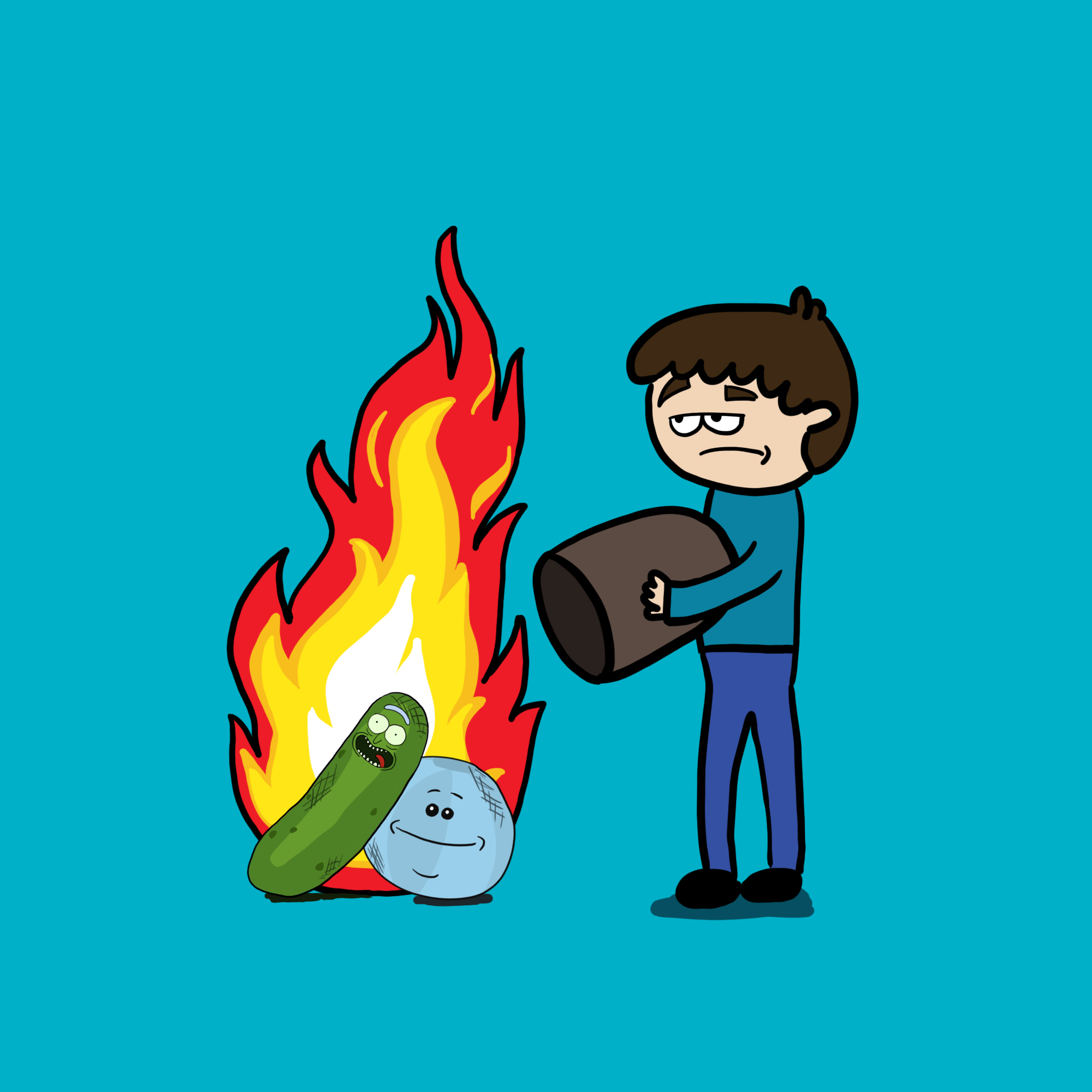Toxic Fanbases ruin things for everyone else


We like to imagine that our personal opinions concerning what we love are organic and intrinsic to our privately designed scale of quality.
Pure, honest and uninfluenced by external things, we judge by what’s meant to be judged and nothing else.
Yet, sometimes, when it becomes abundantly clear you are not the only one who feels so strongly about something – and you are forced to rub shoulders with every ugly type under the sun – how welcoming will you be to the fact that you share the same distinction of them as a “fan?”
Imagine one’s embarrassment when they have to admit that the thing they love so much is the same thing that caused legions of pathetic adult children to harass minimum wage McDonald’s employees to get a packet of sauce their precious cartoon mentioned in a joke.
A rather inane dilemma, I know, but this is the peril of owning up to being a Rick and Morty fan; the latest fandom to be ruined by toxic behaviour perpetrated by a heavily vocal minority of fans – making all of them look bad by association.
Because of this incident and others like it – such as the exclusive, misogynistic harassment of R&M’s female writers also done by so-called fans – the perception of the show has become tainted by the loudest, dumbest and worst types of people who, like some of you, love Rick and Morty.
As a fair weather fan of the show who enjoyed it to a finite point, seeing such behaviour en masse made me legitimately question if we watched the same show and if this could ruin it for me.
Of course, this phenomenon is not exclusive to an edgy, nihilistic science fiction parody, as nearly any collective fandom can become inundated with the poison touch of mass shitty behaviour.
My resolve was not strong enough to withstand the people, who – like a pathogenic swarm – infected the host show of the fandom with their disease.
The progressive and wholesome Steven Universe had its own brush of bad fans when a vocal minority bullied a fan artist to the point of life-threatening self-harm after they deemed her tributes “offensive” to their sanctimonious entertainment.
And need we forget the inexplicable “brony” crowd, whose fanatical appreciation of a children’s cartoon overshadowed the core demographic in a disturbing eclipse of neck-bearded nerdom.
Rick and Morty, by virtue of being too good for the audience it cultivated, is merely the latest in a long line of toxic nerd subcultures that push away casual viewership with their extreme behaviour and actions committed in the show’s name.
Shitty fans will always exist it seems, but can their tendency to dominate the conversation around a show make that show less worth it for the casual viewer?
We’d like to think not, but personally the behaviour of Rick and Morty fans forced me to reevaluate my own enjoyment of it – and where it lays between distaste and fanatical badgering of McDonald’s employees.
I was harsher on the show than I am others and flaws began to emerge like tiny satisfying steps dissociating myself from the ignorant horde of fandom. I still like the show a great deal, but I cannot lie and say toxic fans did not alter my opinion of the show, no matter how slight.
Maybe it’s as easy as saying “get over it” and “they don’t affect me or my opinion,” but I feel fandoms will always be a part of the conversation no matter what you say, and the worst of them will always be the ones who frame what it means to be called a fan.
My resolve was not strong enough to withstand the people, who – like a pathogenic swarm – infected the host show of the fandom with their disease.
If I like something, I’d rather not have a caveat for my enjoyment hinge on my distance from the worst the show could unintentionally produce.


